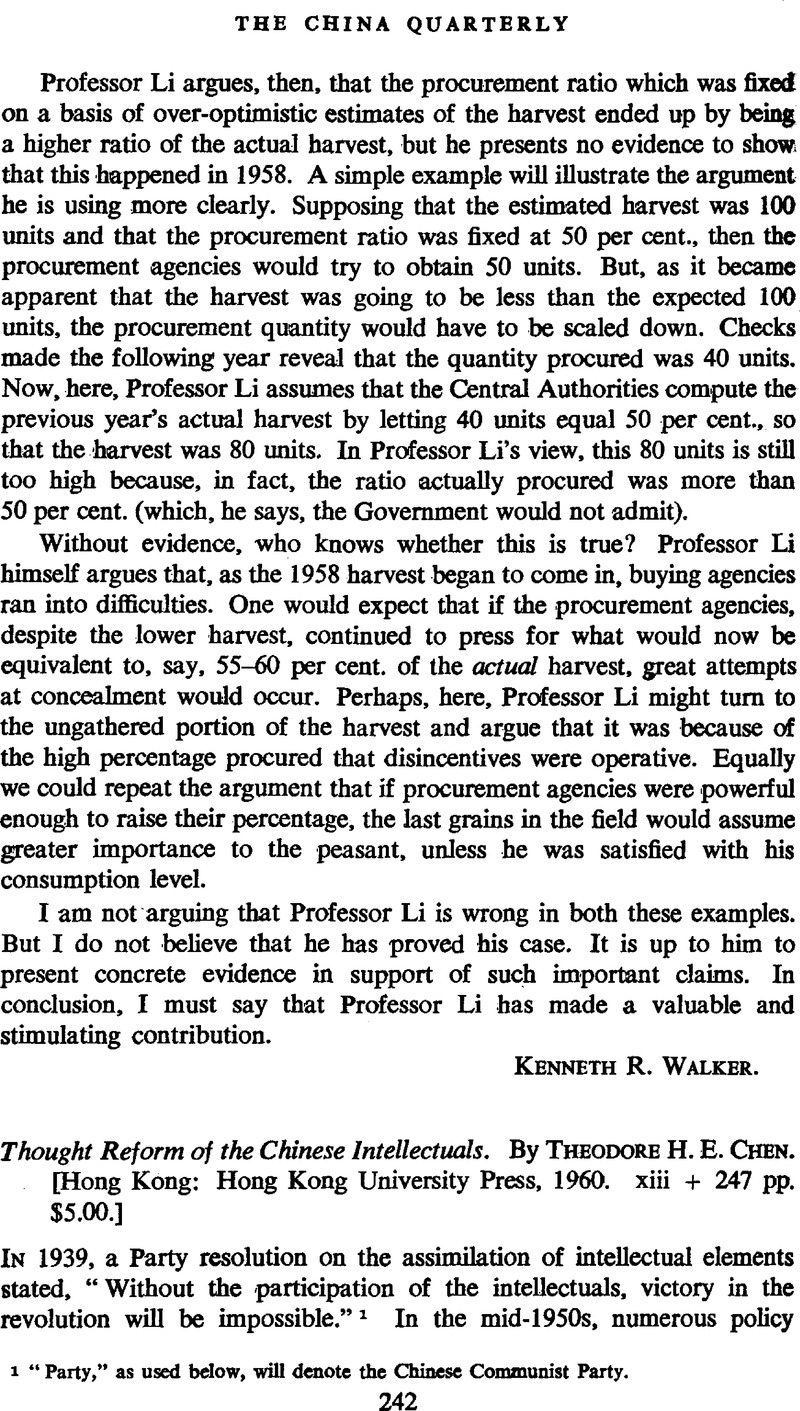No CrossRef data available.
Published online by Cambridge University Press: 17 February 2009

1 “Party,” as used below, will denote the Chinese Communist Party.
2 Doolin, Dennis J., “The Revival of the ‘Hundred Flowers’ Campaign: 1961,” The China Quarterly, No. 8, 10–12 1961Google Scholar; also, “Hundred Flowers”: Mao's Miscalculation, Stanford University Studies in International Conflict and Integration, 03 17, 1961.Google Scholar
3 Teng Ch'u-min's criteria were remarkably close to those advanced by Mao, yet they were criticised by others who had heard Mao's original speech. See Peking, Kuangming Daily, 04 21 and 26, 1957.Google Scholar
4 K'o Ch'ing-shih, First Secretary of the Shanghai Municipal Committee, NCNA, 05 20, 1957Google Scholar. Also see Wei-han, Li's remarks in People's Daily, 05 7 and 15, 1957.Google Scholar
5 Personal letter from Mr. Sidney Gruson, February 1, 1961. Mr. Gruson was the Warsaw correspondent for the New York Times during the “Hundred Flowers” period.
6 MacFarquhar, Roderick, The Hundred Flowers Campaign and the Chinese Intellectuals (New York: Praeger, 1960), p. 263.Google Scholar